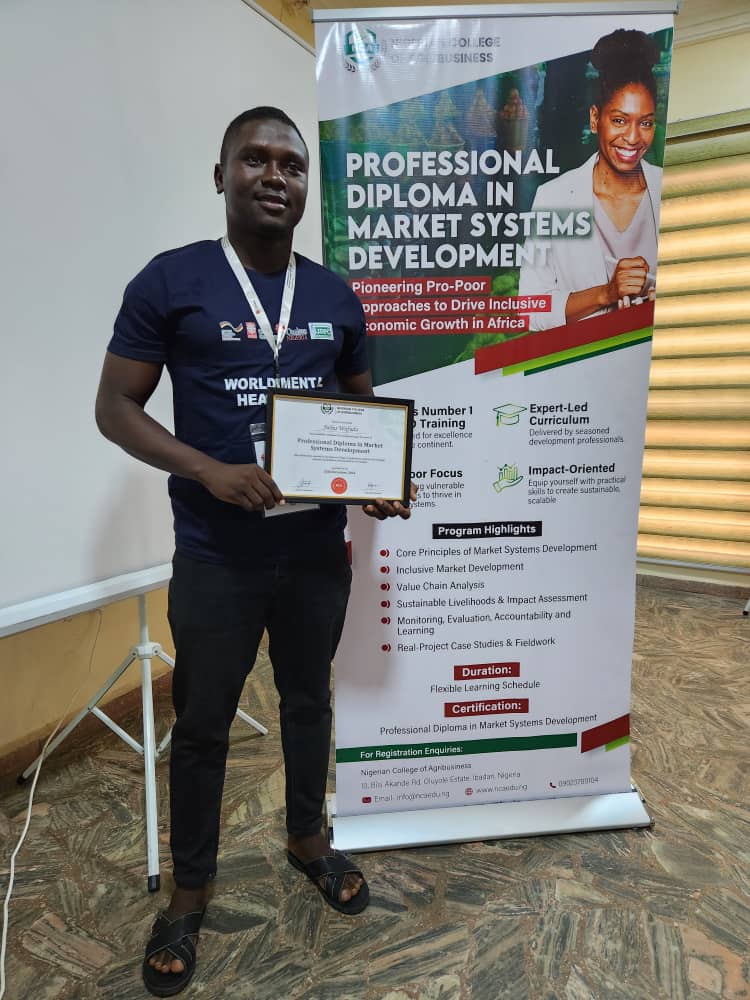Start Dates
Duration
Fees
Mode of Study
Lead Africa’s Shift to Regenerative Farming and Sustainable Natural Resources Management
In a world facing unprecedented environmental challenges, agriculture must evolve to protect ecosystems, enhance biodiversity, and ensure sustainable food production. Agroecology and regenerative farming offer the keys to this transformation by integrating ecological principles with innovative farming techniques. This Professional Diploma in Agroecology, Regenerative Farming, and Natural Resources Management is designed to equip you with the skills, knowledge, and practical tools to lead Africa’s agricultural systems toward a more sustainable future.
This cutting-edge diploma combines the science of agroecology with regenerative farming practices and sustainable natural resources management. You will learn how to design farming systems that restore soil health, conserve water, enhance biodiversity, and contribute to climate resilience while producing high-quality, nutritious food. By focusing on holistic, nature-based approaches, this program will position you as a leader in the transition to sustainable agriculture in Africa.

Learn how to restore ecosystems, improve soil health, and sequester carbon through innovative farming practices.
Lead efforts to manage land, water, and biodiversity in a way that balances agricultural productivity with environmental stewardship.
Guide the shift to sustainable, ecologically sound farming systems that enhance food security, rural livelihoods, and environmental health.
Introduction to Agroecology and Regenerative Agriculture
This module introduces the foundational concepts of agroecology and regenerative agriculture, both of which emphasize the interconnections between farming, ecosystems, and human well-being. You will learn how to apply ecological principles to agriculture and design systems that regenerate natural resources while producing food.
Actionable Insights:
Soil Regeneration and Health in Sustainable Agriculture
Healthy soils are the foundation of sustainable farming systems. This module focuses on techniques for restoring soil health, improving its structure, and increasing organic matter. You will learn how to implement practices that regenerate soils, boost productivity, and sequester carbon to mitigate climate change.
Actionable Insights:
Water Conservation and Management in Agroecological Systems
Water is one of the most critical resources for agriculture, particularly in regions prone to drought or water scarcity. In this module, you will explore techniques for managing water resources more efficiently, ensuring crops thrive while minimizing water waste and environmental degradation.
Actionable Insights:
Biodiversity and Ecosystem Services in Agroecosystems
Biodiversity is central to the health of agroecosystems, providing essential services such as pollination, pest control, and nutrient cycling. This module will show you how to enhance and manage biodiversity in farming systems to create more resilient, productive landscapes.
Actionable Insights:
Sustainable Natural Resources Management and Conservation
Natural resources like forests, wetlands, and grasslands are essential to agricultural sustainability, but they are under threat from overuse and mismanagement. This module focuses on strategies for managing land, water, and biodiversity in ways that support agriculture and protect ecosystems.
Actionable Insights:
Agroecological Solutions for Climate Change Adaptation and Mitigation
In this final module, you will learn how agroecological and regenerative farming systems can be leveraged to combat climate change. This includes practices that help farms adapt to changing conditions while reducing greenhouse gas emissions and enhancing carbon sequestration.
Actionable Insights:

No other institution in Africa offers such a comprehensive approach to agribusiness and development sector education as the Nigerian College of Agribusiness. We provide a unique blend of academic rigor, practical expertise, and industry connections. Here, you will learn from experienced faculty members who are experts in their fields and deeply engaged with the latest advancements in their industries.
We leverage interdisciplinary knowledge and the latest research to enhance our programs, ensuring they are relevant and impactful. At NCA, you will continuously engage with thought leaders who are constantly shaping the dynamics of their industries and after graduation, you will be a life-long member of a vibrant alumni community that continually foster cross-disciplinary learning and networking.
STEP 1: Complete the Application for Admission Form for the course
STEP 2: A non-refundable application fee of N20,000 applies and will be deducted from the tuition upon enrollment. This is payable into
Zenith Bank
Account Name: Nigerian College of Agribusiness
Account Number: 1228461510
STEP 3: Attach receipt of Application fee with your highest academic credential and submit to: [email protected]
STEP 4: Upon successful evaluation of your application, you will receive your Admission Letter indicating acceptance into the program. The Letter will also contain details of enrollment into the Course.
Click on the link below to fill the application form for this course
Virtual: N300,000
Physical: N450,000
International Students: $400
Get monthly marketing tips and exclusive discounts straight to your inbox

Our mission is to cultivate a vibrant, sustainable and profitable agribusiness sector that drives economic growth and social progress across Africa and beyond.
We are committed towards educating a new generation of agribusiness sector leaders that will transform the economic fortunes of the African continent
© NCAEDU 2023 All Rights Reserved.